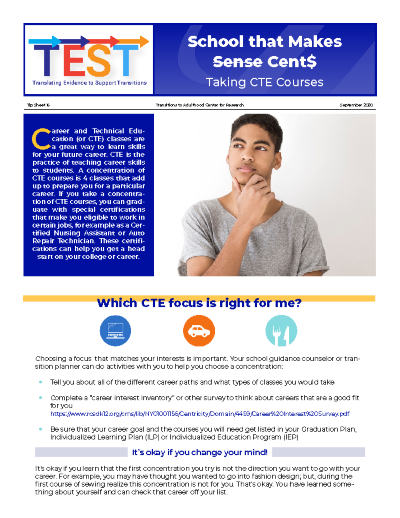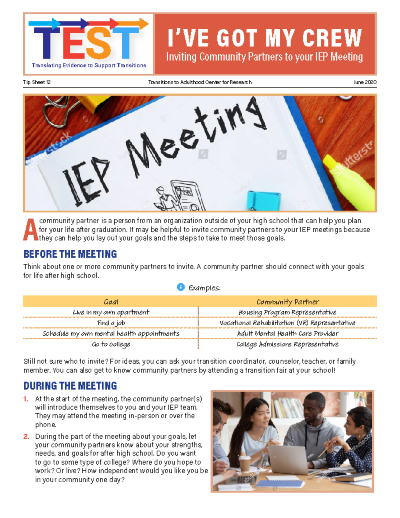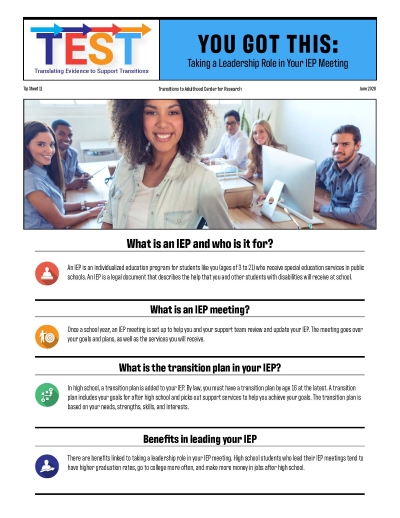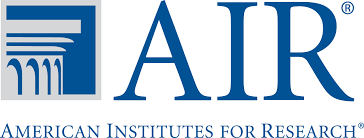Contact Us
For more information on TEST please complete visit our Technical Assistance page.
Translating Evidence to Support Transitions (TEST) is a grant we received with the goal of increasing the use and adoption of research-based best practices in transition planning services for high school students with Emotional Behavioral Disturbances (EBD) receiving special education services. The goal is to deliver these best practices in a series of products which can be used by special education transition teams across the US, which will improve employment and education outcomes for this vulnerable group. Some of the research findings and resulting products from TEST are available below.
Research shows students taking a leadership role during their transition planning meetings is correlated to postsecondary education enrollment. This practice guide provides special educators with 5 lesson plans to inspire students to take a leadership role in their IEP meetings. By completing these lessons, students learn more about their IEPs, build self-determination, create their own IEP goals, prepare to lead their IEP meetings, and practice leading their IEP meetings.
Research indicates that having a postsecondary school representative at a student’s transition planning meeting has a correlation with a student’s postsecondary education enrollment. This practice guide equips special educators to recruit and engage community partners to participate in transition planning with students, actively incorporate community partners into IEP meetings, and sustain connections with community partners over time.
Research reveals that a concentration of career-specific CTE courses is correlated to finding full-time employment after high school. This practice guide readies special educators to complete career assessments and career exploration activities with students, work with students to create post-high school career goals, determine a progression of career-specific CTE courses to take in high school, and develop IEP supports to reinforce CTE learning.
High school students with EBD are:
These guides are for a variety of educators who support and serve students with Emotional Behavioral Disturbance (EBD), such as:
For these guides, “students with EBD” includes:



For more information on TEST please complete visit our Technical Assistance page.


TEST is a Transitions ACR project completed in collaboration with NTACT and AIR.
Project Collaborators: Drs. Catherine Fowler and Deanne Unruh of National Technical Assistance Center on Transition (NTACT), Joann Starks of American Institutes for Research (AIR), and Dr. Sloan Smith.